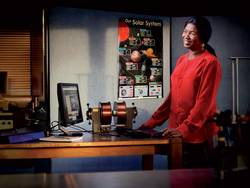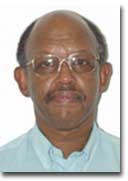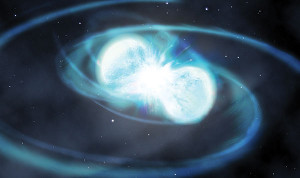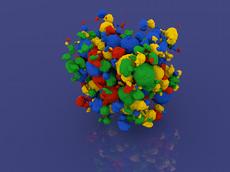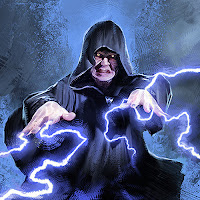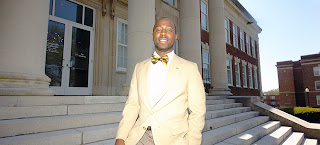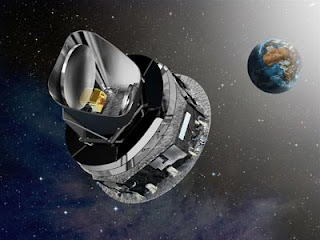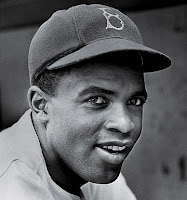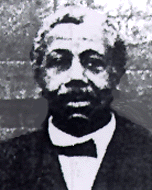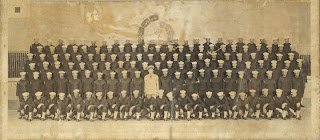I wanted to post the story form of i00 of Cypher Team. Hopefully you all like the read and hopefully if there is any insight, you awesome, talented writers of BSFS will help me out a bit, lol. Well, here it is...the story form of Cypher Team i00 Enter Cypher Team.
Cypher Team i00 ©2009-2015
Enter Cypher Team
The Madame sat at her glass desk as it seemed to float in its place, suspended in the air as the glass stole the bulk of the largely built office table. Trivial amounts of metal crisscrossed through it bringing the idea of its hovering appearance back down to earth.
A hand found her temple as she massaged it, her eyes closed as she seemed to bare a lot on her mind. She reached for a small glass with her other hand dragging it across the table slowly. She drank from it, its contents relaxing her a bit more as she unwound in the chair.
“This ain’t gonna be a good day.” The southern twang from her accent stood out as she sighed looking on at the monitor attached to the wall 20 feet in front of her.
“I can’t say I didn’t see this comin’.” Her gaze was fierce as she looked on to the television, blowing a couple loose strands of blonde and brown from her face. A camera gazed on at the mob on the ground as humans and phenosapiens clashed in the streets. A Reporter tells the story as the helicopter she was in circled the area; the camera following in its pan.
“This is Stacy Johns, reporting from the KYZ4 Direct Action news chopper. We are over Jacobs and Sterling dead center in the middle of North Star City where the Phenosapien hate group Protectors of Mankind have made a very disturbing display of their outlook on the Evolved populace of the city. Witnesses say that P.O.M was the first to strike as Phenosapiens lined up outside the T.E.M.P.L.E facility to register their powers. The act against the Pheno’s resulted in retaliation which triggered a brawl in downtown between the two.”
The reporter, Stacy Johns, continued her tale as the phone of the Madame began to ring. She looked at her desk, a smile finding her face as she recognized the number that was displayed on it. She pressed the speaker button, “General Blair,” She answered.
General Blair, this is Joseph Locklear director of TEMPLE CIA. His voice sounded old coming over the phone and fatigued as though he had, had enough with his job but, wasn’t willing to give it up.
Her hand found a display pad backlit into the glass on her desk that looked similar to a remote; she pressed the mute key turning off the sound of the woman’s voice. “I know who you are Director Locklear, how can I help you?”
Very well then, I will go ahead with the reason I called. I’m sure you know what’s going on in North Star City.
“Yes, I’m aware of the situation. I’m actually looking at the cluster fuck on the TV right now.”
Okay, well, we need your help. We would like to reactivate The Black Lions. This is a situation where we are going to need fire power. We need to impede both sides of this, the human side and the Zenith side.
She nodded, drinking from her glass once more. “Have you guys made any moves?”
He cleared his throat, a bit hesitant on the answer as she sat there and waited for his retort. We tried, we sent in Echo, Lima, Sierra and Tango squads from TDI swat for riot control. However, tides were turned against them as one of the squad members shot tear gas a bit too close to an Zenith’s child.
She snickered, shaking her head at the fact that four teams went in to cull the situation and instead poured gas on a fire that was already burning out of control. “You guys sure do know how to add gas to the fire now don’t ya?”
This is the reason we are asking for the assistance of your team, The Black Lions have to be reactivated; Or else, this is going to be on more channels than just KYZ4. She flipped through the channels as the director spoke.
“Too late, it’s already on GTN. Looks like there’s about to be pissed off Phenosapiens all ova this planet now, Director.”
General, anything your team needs from TEMPLE, you have it. Deactivating the unit was indeed a premature choice.
“Well, I’ve been sayin’ that for the longest. If your sure though, we will move in. I will send in a SEQR squad first to get out any non-combatants,” she continued, spinning her glass around on the table as she spoke.
Her face shining with a winning grin; she finished off the glass.
This isn’t combat, his voice came over the speaker.
“It will be,” she answered.
He sighed and attempted to try to collect himself before he spoke again. Background clatter could be heard from his office to hers as it echoed through the speaker. His assistant had walked in and he was giving him the update on the situation. The Madame could hear it all and she itched, she wanted to stop it; they were taking too long.
Do what you can General Blair…and please, with as little casualties as possible. We don’t need another incident like before.
“Understandable, The Black Lions will be activated. Mission will commence within 20 mikes.” She pressed a button on the phone turning off the speaker and then picked up the handheld, quickly placing it back to the phone. She pushed herself away from the table and stood to her feet a smirk drawing on her face.
“I was wondering when they were gonna call.”
~~~~~~~~~
The air in the room was icy, the furniture holding still as they seemed to be frozen in their spots. The only movement came from the glimmering computer screens that pulsed in their back-light adding to the fluorescent hue of the area, a black lion flashed across the screens. In the middle of the scope a table sat, decent mass, about conference size. Roll away metal with leather accented chairs bordered it. In the heart of the table a see through section sat, about 42 inches in width, its glassy screen too had a lion in the midst of it.
The silence of the room was interrupted by the clamor of individuals as they entered. They all had their own conversations going on as they found seats, some rolling away the chairs to take a place, while others stood close, either beside the seated individual or behind their chair. Some were rebels, not choosing either as they found the edge of the desk more comfortable than the leather of the chairs.
A man looked down to his wrist to check the time, and then back around the room at the faces that were there as though he were looking for someone in particular. His black hair with bits of aqua reflected under the shine of the fluorescent as he continued to scan the room. “All accounted for, but one.”
The conversations came to a halt as the group followed suit, looking through the members that had gathered at the table.
“Lt. Reign?” A woman asked with a stern look on her face. Her light mahogany skin began to change over to a mercury gray color as she grit her teeth. “She’s NEVER on time; she’s an infiltrator there should be no excu…”
“I am here Akana,” a meek tone, voiced out of nothing. “Behind you…” she finished causing the already uneasy woman to turn as the bearer of the voice fell into visibility, her camouflage giving way.
“Captain Singleton!” Akana bluntly followed referring to herself causing the pink haired girl to cast an eye at her.
“Roger that…Sencho,” Sanjera answered turning away from Akana to look towards the door as another woman entered the room. She had fair tan skin with blonde and brown highlight hair but that slowly changed as she gained steps into the room. Her skin altered to green as her hair followed suit, white highlights bathing in the green strands.
“How about both of you chill out,” she barked as she entered, the southern twang ever so present. “We have bigger fish to fry. There’s a nice little brawl going on in downtown North Star City. Save your hostility for that, trust me, you’re gonna need it.”
“Yes Madame,” the once mahogany now gray skinned woman replied as her body began to turn back to its original color. Her husband, Jordan, placed his hand on her shoulder, massaging her a bit in an attempt to calm her. Akana was the uptight one on the team, rules and regulations were what she went by and missions made her that more tough. Actually, both of the Singletons were extremely serious when it came to rules and regulations, especially around mission time. Jordan’s background in the Marines and Akana’s background in the British Marines made sure of that.
“Madame,” Sanjera followed, bowing in respect to the woman in front of her. She cast an eye over to Akana once finished, repeating the same, “My apologies,” she spoke, still calm as she pushed a couple loose strands of pink behind her ear. Sanjera was half Japanese, raised in Japan as well. Which explained her mannerism. One couldn’t tell by just looking at her alone since her skin complexion didn’t give her nationality away. She was half black also, her father being a naval Captain who decided to stay in Japan with his wife after he retired.
General Blair or as she was so openly called, Madame, looked around the room at her unit. She knew them all, some she worked with previously when she was just a member of the old team and then there were the new faces as a mixture of veterans and rookies sat around the conference table. It was a largely different group from that one 5 years ago. Even while deactivated, they recruited, in preparation for what would come.
“We have a very important mission ladies and gentlemen,” she spoke pointing to the table as she finished her walk, in a sense, urging them all to group around it so they could look at the display that lit up on it.
“Like I said, there’s a nice brawl going on in Downtown North Star between the P.O.M and Zeniths’s. This kicked off about 30 minutes ago. TEMPLE CIA sent in TDI SWAT for riot control and well, they couldn’t handle the situation so, they reactivated us. Our job is to, basically, stop it; both sides. Jahcera is heading up the SEQR team that went in to clear out any non-combatants. In other words, children.”
“Wait a second,” Akana interrupted, keeping her gaze on the General. “Jahcera? As in Sgt. Jahcera Paige, Lt. Reign's protégé?” She smirked a bit, turning to Sanjera.
“Yea, that one, she’s been doing well as of late. So, all we can do is hope that she has gotten all casualties out.”
“She will complete the mission.” Sanjera followed.
The Maddam nodded. Jahcera was a troubled teen, turned good. Her path was on the wrong end of the spectrum so, some of the Lions had their doubts. Sanjera on the other hand, the one who found her and trained her so she wouldn’t have to endure what would have happened to her, thought differently.
“So, shit is definitely out of control if they decided to put us back in the mix? Sounds like TCIA and TDI are having their asses handed to them.” The dark skinned, aqua eyed man spoke up, looking on towards the general as he placed a calm hand to the table, a grin on his face. He and the General were acquainted and knew one another well. He was part of the old team, not much of a soldier; he got his rank from being a geneticist. However, that wasn’t to be taken lightly, he was second in charge of the unit and was well known for his powers.
She laughed, “Yea Elias, it sure has.”
Her smile lingered a bit as she moved closer to the table, placing a hand on it. When her fingers met the clear surface a red light scanned over them, voicing her approval as the Black Lion faded from a desktop. She flicked her wrist a bit, bringing a folder over the desktop as she double tapped it with her finger tips, an aerial view map of the city popped up. She brought over her other hand placing it too, to the table and quickly began to raise both hands into the air above the display. A 3-D layout of the city and its buildings followed.
“Upgrade?” Jordan asked
“Yea, damn technology.” She answered.
The group snickered a bit as they put their sites on the map layout that was now scaling through the city as she moved pieces out the way to put a full view on downtown, the brawl and the surrounding areas. “The situation is, Protectors of Mankind versus Phenosapiens. So far the news is, POM started it, the Zenith’s were just registering their powers with TEMPLE or rather, waiting in a line outside to do so.”
She pointed a finger to the image scaling it a bit more, to the point where the riot could actually be seen going on, in real time. POM members fought against the Zenith’s in what they called, Reaper suits. It allowed them to somewhat match powers with Zenith’s because otherwise, fighting them would be useless. The locale lit up with an orange bulls-eye when her finger met it, a spot close to the TEMPLE building.
“This is where everything kicked off, moving over into the streets of course,” she sighed, looking back up to the rest of the group.
The district on the map continued to flash as she moved her finger to another grid, “This is where I was told Jahcera and her SEQR team were going to enter from.”
“So, if things didn’t go according to her plan, it might be a rescue mission also?” Elias asked.
“Yes, Elias…but, let’s hope that they did. Jahcera completing her job is very important and it’s going to have a strain on us. It virtually decides on whether we can be affective or not. You know, if she fails…or not.”
“Alright. Makes sense.” He nodded.
“This is where I want our landing zone to be.” She continued, pointing to another grid on the map. It was a clear spot, close to the middle of the fight making it easier for them all to get to the center to attempt to stop everything; But of course, that fight could clog things up just as quickly as it cleared. “We will fly in using a HJ-01 Manta.”
The group looked around at one another, grasping the brief of the mission. “The plan is to go in with just us.” She continued. “By us, I mean THE Team. So, we are going to leave all the other teams behind. We’re keeping this reactivation as small as possible...for the time being at least.” Moans of disapproval could be heard echoing in the room. "Oh stop whining, you all will get your chance."
“So, we’re gonna have to take the gloves off.” Elias added. “This is gonna be fun.”
“Yea, that’s the idea. Once we hit the ground we will disperse… Jordan and Akana together…Elias, you come with me. We need to seriously split this up and on top of that, we also need to keep an eye out for the Angels of Anarchy.” The group nodded in response.
“Sanjera, you’re gonna be the only one that goes in solo. Your mission is to find your pupil and her SEQR team. You know what they were supposed to do, make sure they do it and then clear out the LZ for us. Support them first, and then come to the LZ and clear it for us.” She looked over to Sanjera, a smile touching her face as the other group members followed her eyes, looking to her as well.
“Roger that Madame,” she answered looking back towards the map, “I’m guessing my entrance will be via halo drop?”
“It’s the only way to travel, right?”
Sanjera smiled examining the map, “may I request this area?” She asked, pointing to a spot on the map. The area was almost in the middle of the P.O.M side, a little towards the back. Her idea was, if Jahcera were to get into any trouble, she would go the opposite direction of the Zenith’s because, she didn’t have any powers. Not to mention, the entrance will allow her to take out many of the P.O.M members.
“Let the pilot know once you are airborne. Your mission has started, you have 15 minutes the Stinger is on the pad waiting for you.”
“Arigato,” she bowed then turned to exit the door. Moving her hands, she began to form signs. Her uniform appeared on her in response to the signs she formed. She looked her part; the ninja of the group. Her wakizashi was placed along the small of her back, held by a chain that connected to the bottom of an armor that covered her left side. Her wakizashi wasn’t normal though, it had a crescent blade that connected to the hilt. That, she would use for blocking, pokes, stabs and decapitations. The top of the hilt, connected to the blade were two smaller blades that made the wakizashi look similar to a shi; this allowed for disarming. She also had a thin, damn near invisible line attached to the hilt with a kunai on it. This was used for wrapping or stabbing and pulling. Better than all of that, her wakizashi could extend to full katana. Her sword was the ultimate weapon, passed down through her family.
“Ato.” She threw up two fingers as she exited the room.
Madame Neutron looked back to her team as Sanjera exited the conference room. “Colonel Reign, Alchemy, Pyreblade…gear up. We leave in 15.”
~~~~~~~~~
“Lieutenant,” the pilot called over the headset as he switched the controls of the Stinger, HJ-02, from flight to hover and turned to look into the aft of it. “These are the quadrants you asked for, weather is clear…the air is a bit cold at this height though, about -3 degrees Celsius. The closer you get to the ground, the warmer it should get and on top of that, the wind may pick up. Visibility is also clear, considering what’s going on. You’ll be jumping from 17 miles up.”
Sanjera grabbed her helmet, not acknowledging the pilot as he passed the information over the COMs as she unstrapped her harness rising to her feet. She walked to the center of the aft of the stinger pressing a button which caused a section of the flooring to dematerialize. She put the helmet on, buckling the straps and then looked back to the pilot. Finally she acknowledged him with a thumb up before stepping out, from the stinger.
He smirked a bit, seeing the slim built girl step from the stinger on a solo mission, so casual like. He heard stories about Sanjera but never got to see her in action. He did however feel a bit of remorse for the poor souls on the ground. He turned in his seat and changed the controls flipping a couple toggles as the HJ-02 went from hover back to flight. In the exchange he spoke over his COMs device. “Madame, the package has been delivered.”
Sanjera dropped through the sky, her arms as tight to her sides as she could possibly get them, her legs just as tight as they stuck together; her head towards the ground as she looked on, gaining speed with each inch. At this point she had turned herself into a human missile. The airstream ripped past her as she sliced through it, the rugged sound of wind pressure beat against her helmet with the decent. It was a long fall, most HALO drops were and she continued her dive, wading through the hardships, until see was close enough to give a synopsis.
The fall was approximately 29,920 yards, to think she got to her 2500 yard marker in the time she did was, just her. “2000 yards,” she yelled over the COMs, “switching H.U.D to on board targeting systems.”
Slowly she fought against the wind managing to lift her arms as she spread her legs. Flaps in the gaps of her legs and arms and body opened on her suit, slowing her decent a bit as the updraft caught her, lifting her.
“1700. The H.U.D is picking up friendlies in my drop zone.”
“How many?” Elias asked her.
“One,” she answered, keeping her arms and legs spread as her fall went into a gliding hover, still cutting through the yards as she made her approach. “It seems the friendly is on the move, the H.U.D is picking up another, zooming in. It’s Jahcera, she’s chasing a little girl.”
“Anything else?”
Sanjera turned her head a speck to scan the area a bit more, she gasped as she saw P.O.M enemies moving in on the two. “Yes, they are being converged on…I believe the girl is a Zenith, Jahcera is trying to get her out of that area.”
“Shit, do what you have to Sanjera….what /ever/ you have to. The last thing we need is the death of an Zenith child on the news, not again. However, stun the enemy...don’t take them out; we don’t need dead humans either.”
“Roger that.” She answered, forming seals with her hands again, causing her chi energy to began encompassing her body. She brought her arms back to her sides and closed her legs, once again propelling herself through the air back into the direction of the ground below her, this time moving faster than she had the first time. Her hands found the pouches on her lower thighs and from them she pulled suriken. She spread the suriken in both hands, revealing four in each hand. Slowly, she began to charge them with her inner chi, causing a bit of electricity to arc from them.
“Sanjera…are you not going to glide in?” her cousin asked over the COMs.
“There isn’t enough time for that Elias, I can handle the drop.” She answered back, as the static began to grow a little more.
Elias chuckled a bit, “be careful.”
“I will be.” She answered keeping her eyes on the ground. She could see that Jahcera had finally gotten to the little girl and was now protecting her as she herself opened fire on the Reapers with her own set of pistols.
“Jahcera, get that little girl out of there, NOW. I’m moving in…FAST.”
“What?” she answered back over the COMs looking up into the sky, “come on little one, we gotta move.” She picked the girl up, holding her with her left arm after holstering that 9 and began to run, using the other to engage the enemy. She began to make her way back towards the Zenith side.
“150 yards,” Sanjera calmly spoke, exhaling as she launched the electrified suriken in the direction of the Reapers. She threw up up a hand, forming a seal to control the electricity as she released it from the suriken. The electricity shocked those within the range of the weapons, knocking them out instantly. Those who weren’t affected or out of range looked up, seeing her as she made her approach.
Quickly she formed hand signs again as she flipped, preparing to land. She hit the ground, landing, acrobatically on her hands and knees causing the concrete below her to crater as it waved up from around her, knocking the rest to the ground. She finished her hand signs, “Kishu wind style: Dragon breeze.”
The wind around her roared as it began to spin counter-clock wise away from her, slicing through the armor of the reapers as it cast them away.
“Shit!” Jahcera yelled as she turned her sight away from Sanjera, using her own body to cover the little girl, luckily for her, she was out of range.
She waited a bit before uncovering the little girl and then looked back towards where Sanjera was. Her eyes widened in shock as she saw the chaos, she had only heard stories about that move but never, had she ever, seen it with her own eyes.
“Jahcera,” Sanjera spoke, placing a hand to her shoulder.
“Jesus, Sanjera!” she jumped, startled a bit not expecting the woman to be that close to her so soon.
“Are all the non-combatants out?” she asked, looking down to her and the little girl.
“For the most part…this little one was the last one. She got separated from her mom and damn is she fast. I seriously need powers.”
Sanjera kept her eyes on the little girl as she watched her open hers. She could see the fatigue on her and that she had been through a lot. Not only that, she could see that she was indeed an Zenith as her pupils thinned out to cat like slits instinctively. See smiled at the little girl through the see through visor, receiving one in return. Even though her job called for her to be emotionless most of the time, children always found a way to get to her heart.
“Stay close, I’m going to get both of you out of here.” She said with ease, finally taking off her helmet, allowing her once held captive locks of pink hair to fall down her back. She began to wrap her face, taking the remaining cloth to tie around her braid. She then pulled her oni mask out of her side pocket and covered her face in its ninja attire , “I have to clear the LZ but you two are first on my agenda.”
“Right behind you, Sensei.” Jahcera answered.
“Then, let’s move and don’t call me that. We have five minutes before the rest of the lion’s rain down on this grid.”
“Them?” Jahcera asked.
“Yes, let’s move.”
~~~~~~~~~
The Madame looked around her group as they prepared at the aft of the Manta. This was something that they had trained for; despite the fact the unit had been deactivated. To The Madame, that was political banter for you’re not allowed in the field. The reactivation was something that they all were waiting for. She could see their eagerness as Jordan prepped his bastard sword allowing flames to walk up its blade, he bawled his right fist letting it engulf too. Akana had fully turned over to her liquid metal state and was now turning her hands and forearms into weapons, each one switching through different metallic blades and axes. Elias just sat, letting his energy form in his palm. The aqua color of it lit up the aft a bit.
The engines of the HJ-01 whined as it came to a drift, red lights in the rear of the bird snapped on as the propellers in the wings began to spin supporting the hover. The 8x8 section in the floor dematerialized as all the Black Lions rose to their feet. Their red and black uniforms complemented the red lit interior of the bird.
“Lions, Sanjera informed me that we are dropping into a hot LZ. Which means, what was clear is no longer the same. She did what she could to clear the area and is now in the area awaiting us. She had to clear out Jahcera and a young girl before she could make it over. We /are/ at war, don’t forget that…you know your teams…you know our mission. Use precaution, so we can end this and head to a bar afterwards!”
The team members nodded as Jordan let out an “OORAH” to what The Madame had to say. They lined up at the side door, each person taking a step out of the bird one by one, dropping into the now battled hardened zone of Downtown North Star City.
Acronyms:
T.E.M.P.L.E: Tactical PhEnosapien and HuMankind, Protection and Liaison Executive
S.E.Q.R: (Pronounced Seeker) Search and Evacuation Quick Response Team
GTN: Global Televised News
TCIA: TEMPLE Central Intelligence Agency
TDI: TEMPLE Division of Investigation
Zenith: The shortened name for Phenosapiens. Phenosapiens are the evolved humans of the SoveReign Universe. This name also pertains to any Supernatural based human.
